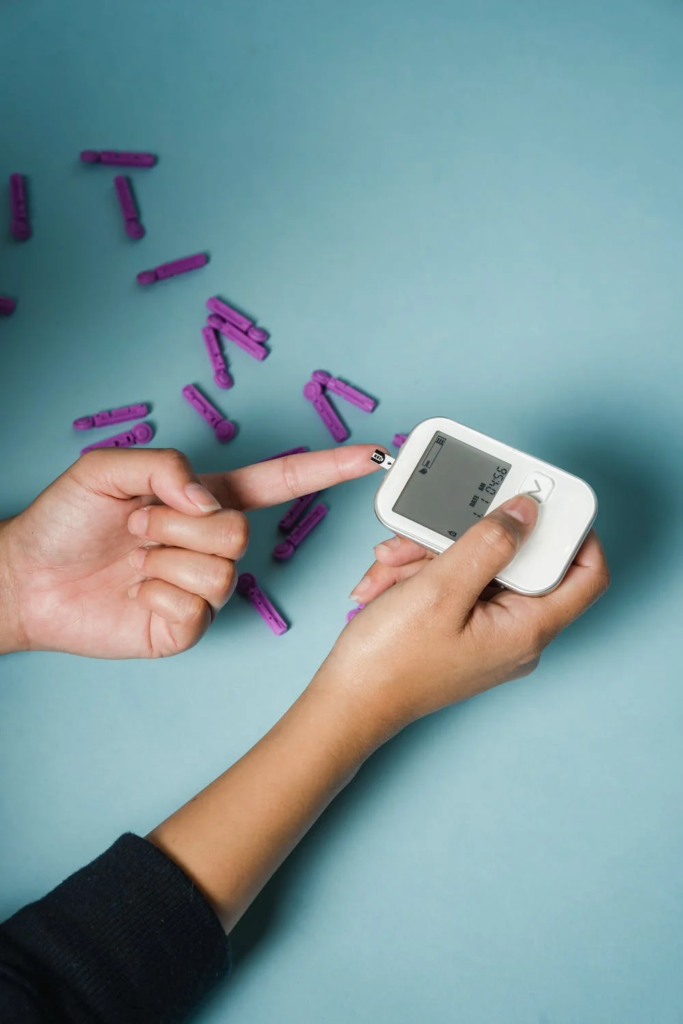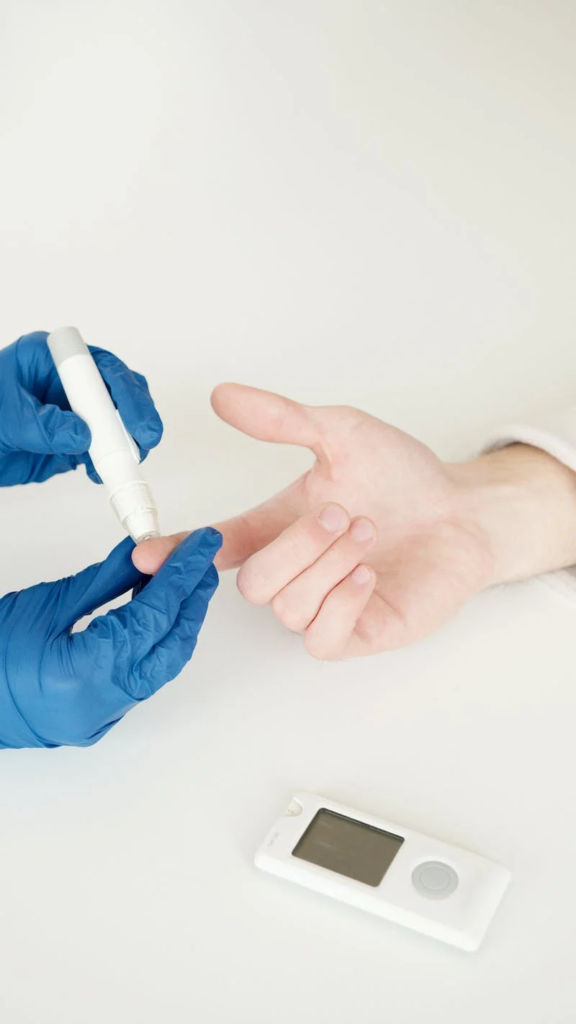Diabetes, a chronic condition characterized by elevated blood sugar levels, affects millions of individuals worldwide. While there may not be a cure for diabetes, the good news is that it can be effectively managed through a combination of lifestyle changes, medication, and regular monitoring. Taking control of diabetes is essential to prevent complications and maintain a good quality of life. Here’s a comprehensive guide on how to manage and control diabetes effectively. Delving deeper into this topic can provide a wealth of insights and information that might surprise you. To uncover a broader understanding of this subject, consider clicking here. By doing so, you’ll open the door to a world of knowledge, where you can explore different perspectives, gain expert opinions, and access up-to-date data that can enrich your understanding. Don’t miss out on the opportunity to expand your horizons – click here to know more!“

1. Educate Yourself
Understanding diabetes is the first step towards effective management. Learn about the different types of diabetes, their causes, and how they affect the body. This knowledge will help you make informed decisions about your health and treatment options.

2. Adopt a Healthy Diet
A balanced diet plays a crucial role in managing diabetes. Focus on consuming whole foods that are rich in fiber, such as fruits, vegetables, whole grains, lean proteins, and healthy fats. Avoid sugary and highly processed foods that can cause rapid spikes in blood sugar levels. Portion control is also important to maintain steady glucose levels.

3. Monitor Blood Sugar Regularly
Regular monitoring of blood sugar levels gives you insights into how your body responds to various foods, activities, and medications. Your doctor will recommend a target range for your blood sugar levels, and you should aim to keep your readings within this range.

Courtesy – pexels.com
4. Stay Active
Regular physical activity helps improve insulin sensitivity and lowers blood sugar levels. Aim for at least 150 minutes of moderate aerobic exercise per week, along with strength training exercises. Consult your healthcare provider before starting any new exercise routine, especially if you have other medical conditions.

5. Take Medications as Prescribed
For many people with diabetes, medication is a crucial part of their management plan. This could include oral medications or insulin injections. It’s important to take your medications exactly as prescribed by your healthcare provider to maintain stable blood sugar levels.

6. Manage Stress
Stress can have a significant impact on blood sugar levels. Engage in relaxation techniques such as deep breathing, meditation, yoga, or spending time in nature. Finding healthy ways to cope with stress can contribute to better diabetes management.

7. Get Quality Sleep
Adequate sleep is essential for overall health and diabetes management. Poor sleep can disrupt insulin sensitivity and lead to higher blood sugar levels. Aim for 7-9 hours of quality sleep each night.

8. Regular Medical Check-ups
Schedule regular check-ups with your healthcare team, including your primary care physician, endocrinologist, and other specialists. These appointments allow for monitoring your progress, adjusting your treatment plan if needed, and catching any potential complications early.

9. Stay Hydrated
Drink plenty of water throughout the day. Proper hydration helps your kidneys function well and aids in maintaining stable blood sugar levels.

10. Build a Support System
Living with diabetes can be challenging, so having a support system is crucial. Connect with friends, family, or support groups where you can share experiences, learn from others, and receive encouragement.

11. Learn to Manage Hypoglycemia
Hypoglycemia, or low blood sugar, can occur when blood sugar levels drop too low. Be aware of the symptoms and always carry a source of fast-acting glucose, such as glucose tablets or fruit juice, to raise your blood sugar if needed.

12. Quit Smoking and Limit Alcohol
Smoking and excessive alcohol consumption can worsen diabetes and increase the risk of complications. If you smoke, seek help to quit, and if you drink alcohol, do so in moderation and always monitor your blood sugar levels.

13. Keep a Record
Maintain a journal to track your meals, physical activity, blood sugar readings, and any changes in medications or treatments. This record can help you and your healthcare provider identify patterns and make necessary adjustments to your management plan.

Courtesy – pexels.com
Conclusion
Diabetes management requires commitment, but with the right approach, you can lead a full and healthy life. By educating yourself, adopting a healthy lifestyle, following medical advice, and staying vigilant about your blood sugar levels, you can take control of your diabetes and minimize its impact on your well-being. Always work closely with your healthcare team to develop a personalized plan that suits your needs and helps you manage diabetes effectively. To uncover a broader understanding of this subject, consider clicking here. By doing so, you’ll open the door to a world of knowledge, where you can explore different perspectives, gain expert opinions, and access up-to-date data that can enrich your understanding. Don’t miss out on the opportunity to expand your horizons – click here to know more!“

